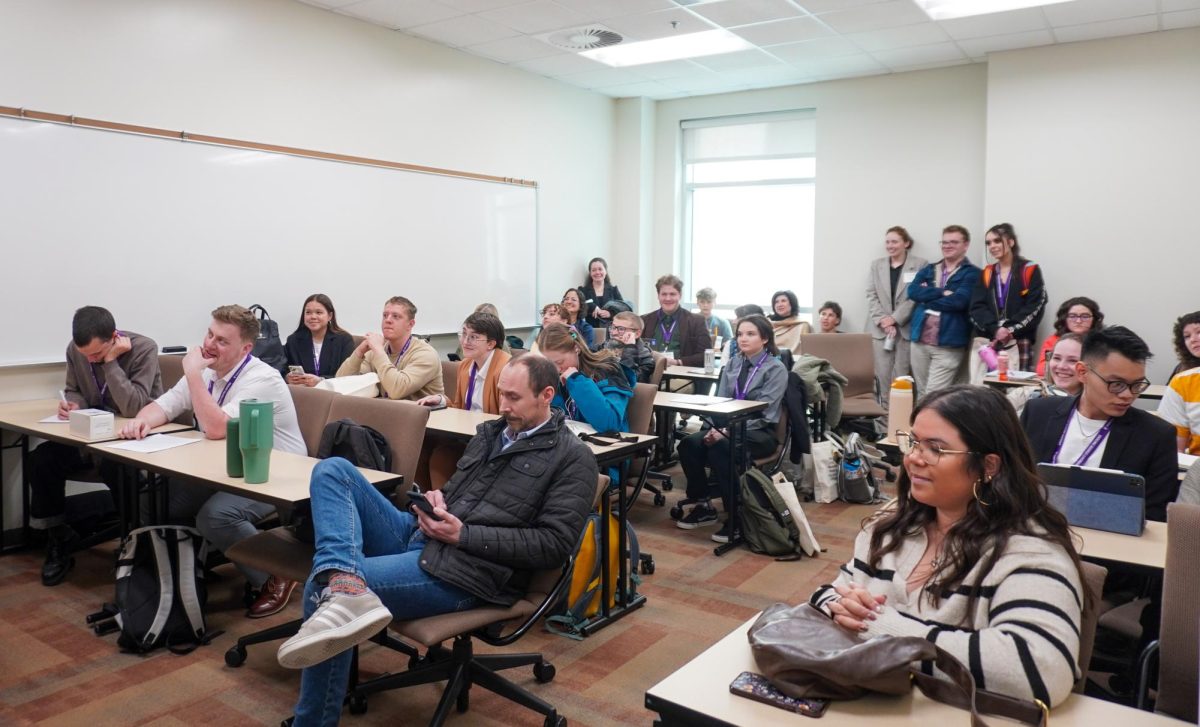Te Anu Tonga, Utah native, film director, and producer of the documentary, “Kapa Haka – Going Home,” shared her experiences as she discovered her Pacific Islander roots, urging Weber State University students to find out where they belong.
The documentary’s producer, Heather Harrison, asked students to “let down the walls you came in with, be open to what you can learn today and take home what you learned to your families.”
Harrison and Tonga were urged to film a documentary about human experiences.
Tonga wanted to connect with her Pacific Islander roots and heritage in New Zealand. She thought she knew who she was, but after the trip, her life was flipped upside down.
In the documentary, Tonga’s uncle asked her, “Why are you here? You don’t belong here.”
Tonga was shocked and hurt by what she had heard, not understanding if her uncle was questioning her or stating that she does not belong among her people.
Tonga faced disappointing conversations but came through stronger after she found out that high school students embraced their Pacific Islander culture through Kapa Haka.
Kapa Haka is a traditional Māori performing art, which translates to “group dance.”
The basic Kapa Haka is performed by forming a line and dancing. According to Tonga, the dance is emotional and uplifting, intended to celebrate the Pacific Islander culture and, more specifically, the Polynesian culture.
Tonga saw students chanting, stomping and emitting emotions into their dance during the Kapa Haka competition, Polyfest. These students demonstrated their love for their culture through their dance and traditional tā mokos.
Tā mokos is the permanent marking of the body and face, distinct from tattoos, wherein the skin is carved by chisels rather than punctured by needles. High school student Te Ria Irigka had a tā moko on her leg that symbolized her mother and two brothers.
Another high school student, Caroline Hamilton, wanted a tā moko for her grandfather because he was her idol. However, she was nervous and unsure of how he would react. Hamilton’s grandfather not only granted permission, but the 80-something-year-old got a matching tā moko with her.
The Polynesian culture has an undeniable closeness with other cultures.
“Everyone’s culture should be embraced and encouraged to share with others,” Harrison said, “New Zealand has impacted my life in ways that I will be forever grateful for.”
Although the three women had no credentials to go to New Zealand to document what they did, Tonga was called to learn more about her culture.
“If you have an invitation to do something, you will figure it out as it goes,” Tonga said, “and the connection is something worth fighting for.
There were times during the trip when Tonga felt underqualified; it was easy for her to feel doubtful as they had about $300 between the three of them and never had a solid place to stay.
Tonga was worried she didn’t know where the documentary would go; it turned out that she didn’t know where she was going either.
She learned by listening to stories from the Polynesian students that her journey to self-discovery and her documentary turned out to be everything she hoped they would be.
By coming to WSU, the three women had one goal, which was to urge attendees to search within themselves and others and ask themselves, “Where do I belong?”
Corraine Paris and WSU freshman, Adam Hess, enjoy exploring and learning about differing cultures. After watching the screening, Paris was getting emotional talking about the importance of human connection.
“When you’re mean to people or you fight with people, you have to realize that they’re someone else’s kid,” Paris said, “It’s important to keep in mind that you’re representing other people as well, like your parents and grandparents.”



















